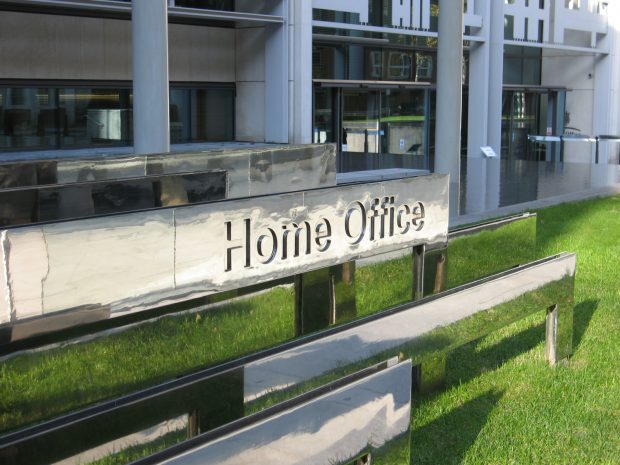
Today’s Home Office-related stories include the Office for National Statistics figures on net migration, Home Office figures relating to the Syrian Vulnerable Persons Resettlement Scheme, the Home Office’s policy towards retirement age ex-Commonwealth citizens and claims of a hunger strike at an immigration detention centre.
Net migration statistics
There is widespread coverage of the ONS publication on net migration statistics yesterday, including from the Guardian, The Times BBC, Telegraph and Politico . The coverage notes that overall net migration fell by 29,000 to 244,000, with EU net migration falling 75,000 to 90,000 and non-EU net migration increasing to 205,000.
Below is a comment from the Immigration minister on the figures.
Immigration Minister Caroline Nokes said:
We are committed to controlled and sustainable migration - bringing net migration down to the tens of thousands. This means an immigration system that attracts and retains people who come to work and bring significant benefits to the UK but does not offer an open door to those who don’t.
Net migration remains 29,000 lower than it was a year ago and once we leave the EU we will be able to put in place an immigration system which works in the best interest of the whole of the UK.
At the same time, we have been clear that we want EU citizens already living here to have certainty about their future and the citizens’ rights agreement reached in December provided that.
Vulnerable Persons Resettlement Scheme
There is coverage in the Sun, Sky News and Mirror of the latest Home Office Immigration statistics showing that the number of refugees resettled under the Vulnerable Persons Resettlement Scheme (VPRS) is over 10,000. The coverage notes that it means the UK is halfway to the target of resettling 20,000 through the scheme by 20 and that the Home Secretary was in Lebanon this week to speak to officials from UN aid agencies and families fleeing the conflict in Syria.
Below is a statement from the Home Secretary.
Home Secretary Amber Rudd said:
As a country we can be proud that we are over half way towards honouring our commitment of resettling 20,000 of the most vulnerable refugees who have fled Syria by 2020 so they can rebuild their lives here in safety. Nearly half are children and more people are arriving every month.
This week I went to Lebanon to see for myself the human impact of the Syrian conflict and talk to refugees about the challenges they face. I met a family who is due to be resettled in the UK and heard first hand how important the resettlement scheme is and how it helps individuals, who have fled danger and conflict, to rebuild their lives.
We are welcoming and supporting some of the most vulnerable refugees and I am grateful to all of the local authorities, charities and other organisations that have made it possible.”
The VPRS is a joint scheme between the Home Office, the Department for International Development and the Ministry of Housing, Communities and Local Government.
The UK works closely with UNHCR, the International Organisation for Migration (IOM), the UN Migration Agency and partners on the VPRS to provide life-saving solutions for the refugees most in need of protection, including people requiring urgent medical treatment, survivors of violence and torture, and women and children at risk.
Comments on retirement age ex-Commonwealth citizens
The Guardian reports on comments from the Barbados high commissioner in London Guy Hewitt who said the Office should adopt a “more compassionate approach” towards retirement-age ex-Commonwealth citizens, who purportedly face deportation unless they can prove their residency status.
Below is our response to the comments.
A Home Office spokesperson said:
Those who have resided in the UK for an extended period but feel they may not have the correct documentation confirming their leave to remain should take legal advice and submit the appropriate application with correct documentation so we can progress the case.
Each application is considered on its individual merits but where the Home Office requires evidence of a person’s residency, the onus is on the applicant to be able to provide this proof.
Yarl’s Wood Immigration Detention Centre
The Independent reports that women at Yarl’s Wood Immigration Detention Centre are holding a 'hunger strike' because of concerns over certain practices at the centre.
Below is our response to the article.
A Home Office spokesperson said:
Detention and removal are essential parts of effective immigration controls, especially in support for the removal of those with no lawful basis to stay in the UK.
We take the welfare of our detainees very seriously and any detainees who choose to refuse food and fluid are closely monitored by on site healthcare professionals.
